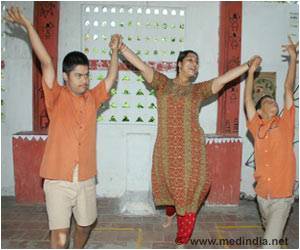India's one million eunuchs face a unique dilemma every election season, do they stand in the men's or women's queue at polling stations or stay away altogether?
India's one million eunuchs face a unique dilemma every election season, do they stand in the men's or women's queue at polling stations or stay away altogether?
In the past, eunuchs, the term used for cross-dressers, pre- and post-operative transsexuals known here as hijras, have largely abstained from casting their ballots because they are unwilling to identify themselves as male or female on voter registration forms.While some eunuchs do vote by listing themselves as female, many are pushing for an alternative or "third sex" option on identity cards, after being granted the franchise in 1994.
Laxmi Narayan Tripathi, a prominent eunuch activist and founder of NGO Astitva, which works with sexual minorities, has never voted and refuses to do so until there is a transgender option on identity cards.
"It's the question of the identity of our whole community," she said.
"In spite of so many years of independence we haven't got our own identity, our own place in the constitution of India."
Most eunuchs live on the outer fringes of society, ostracized and excluded from decent job opportunities and reduced to begging at traffic junctions in major cities or working in the sex trade.
Despite the stigma surrounding them, a campaign to recognise eunuchs as a third sex has yielded some results.
They can now write "E" for eunuch on passports and on certain government forms, but the quest for acceptance at the ballot box, where they have to identify themselves as male or female, still eludes them in culturally conservative India.
"There has been quite a bit of progress so structurally the only thing that comes in is gender politics," said Ashok Row Kavi, chairman of the Humsafar Trust, a male sexual health NGO.
Eunuchs who want to contest in elections for greater rights have come up against similar problems, even though several have been elected to public office as women.
Last month India's election commission denied three eunuchs in the eastern state of Orissa permission to run as candidates unless they identified themselves as male or female.
Pratap Sahu, president of the All-Orissa Eunuchs Association, which fielded the candidates, said the unsuccessful bid had been a form of protest against election authorities.
"We wanted to fight the election on the third sex issue. In India nobody has fought for this," he said.
The relatively small number of eunuchs, compared to other minority groups, means it is unlikely that any party deems them a priority vote bank, said Anil Bairwal, national coordinator for the Association of Democratic Reforms.
"Whether it will be taken up or not, as far as our political parties are concerned, the only language they understand is the language of numbers," he said.
Month-long general elections in the world's largest democracy began on Thursday, with the last of five phases taking place on May 13. Results are expected May 16.
Source-AFP
SRM









